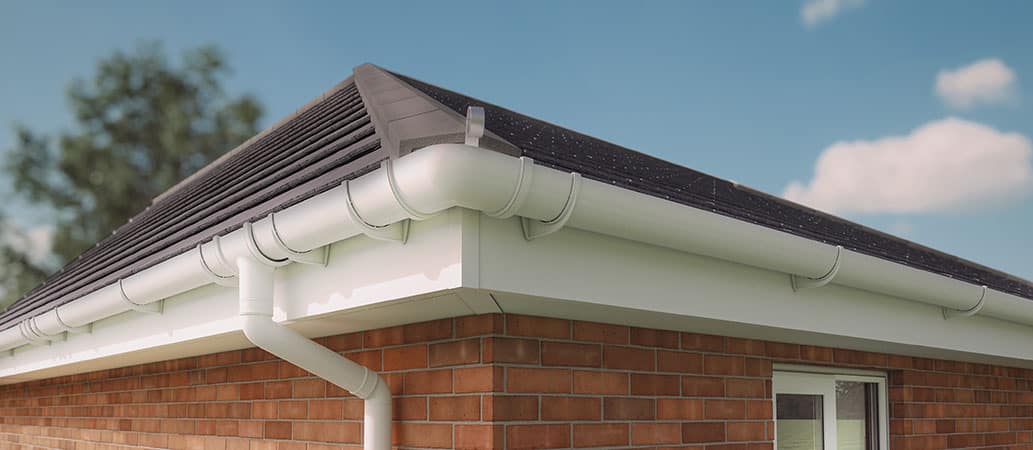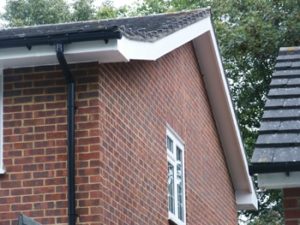Upvc Soffit Tools To Ease Your Daily Lifethe One Upvc Soffit Trick Tha…
페이지 정보

본문
Understanding UPVC Soffit: A Comprehensive Guide
Introduction
The world of home structure and renovation is filled with myriad choices, and one such decision that homeowners often face is regarding materials for soffits. Amongst the various alternatives readily available, Unplasticized Polyvinyl Chloride (UPVC) has become a popular choice. This post explores what UPVC soffit is, its advantages, installation pointers, maintenance, and more, supplying a well-rounded understanding for those considering this option.
What is UPVC Soffit?
Soffit is the overhanging area of a roof that sits beneath the eaves. It is critical in supporting the roof while boosting the residential or commercial property's visual appeal. Traditionally, soffits were made from timber, however with the arrival of UPVC, property owners now have a more durable and low-maintenance option. UPVC soffits are weatherproof, resistant to rot, and offer exceptional thermal insulation.
Secret Characteristics of UPVC Soffit
- Toughness: UPVC materials are resistant to the elements and do not warp or degrade like wood.
- Low Maintenance: Unlike wooden soffits that need regular painting and treating, UPVC soffits are simple to tidy and maintain.
- Versatility: Available in various designs and colors, UPVC soffits can complement any architectural style.
- Insulation: UPVC offers excellent thermal insulation properties, helping in energy conservation.
Advantages of UPVC Soffit
In picking UPVC soffits, homeowners open numerous benefits:
Weather Resistance: UPVC soffits can stand up to severe climate condition-- be it rain, snow, or sun-- without damage.

Fire Resistance: UPVC is non-combustible, making it a more secure option for numerous property owners.
Cost-Effectiveness: Although the preliminary investment might be greater than traditional materials, the longevity and reduced maintenance expenses frequently make UPVC the more cost-effective alternative over time.
Improved Aesthetics: UPVC soffits are offered in different surfaces, enabling homeowners to select designs that enhance their home's appearance.
Table 1: Comparison of Soffit Materials
| Product | Sturdiness | Maintenance | Expense | Aesthetic Options |
|---|---|---|---|---|
| UPVC | Extremely High | Low | Moderate | High (different designs) |
| Wood | Moderate | High | Low-Medium | Moderate (minimal colors) |
| Aluminium | High | Moderate | Medium-High | High (different surfaces) |
| Vinyl | High | Low | Moderate | Moderate (some custom-made alternatives) |
Installation of UPVC Soffit
The installation of UPVC soffit can seem overwhelming, but breaking it down into manageable actions can simplify the procedure. It is suggested to engage professionals for a smooth installation, but homeowners with DIY skills can follow these steps.

Steps for Installing UPVC Soffit
Step the Area: Use a measuring tape to figure out the lengths and locations where the soffit will be installed.
Select Materials: Choose UPVC soffit boards in the wanted colors and styles, together with any necessary accessories like nails and brackets.
Prepare the Surface: Clean and prepare the location to make sure optimum adhesion and fit.
Cut UPVC Boards: Use a saw to cut UPVC boards to the needed lengths based on your measurements.
Install Soffit Boards: Begin attaching the boards from one end, guaranteeing they are level and flush.
End up Edges: Use finishing boards to cover exposed edges for a clean appearance.
Table 2: Essential Tools for UPVC Soffit Installation
| Tool | Function |
|---|---|
| Measuring tape | For measurements |
| Saw | To cut UPVC boards |
| Level | To ensure boards are straight |
| Drill | For fastening screws/nails |
| Security Equipment | To protect while installing |
Maintenance of UPVC Soffit
One of the most substantial benefits of UPVC soffit is its low maintenance requirement. Nevertheless, with any material, some care is still vital to lengthen its lifespan.
Tips for Maintaining UPVC Soffit
- Routine Cleaning: Use a soft brush or fabric along with warm soapy water to clean the soffits.
- Inspect for Damage: Periodically check for cracks, stains, or other damages, specifically after extreme weather condition.
- Seal Joints: Ensure all joints remain sealed to avoid leakages and water ingress.
- Prevent Harsh Chemicals: Do not utilize abrasive cleaners as these can damage the surface of the UPVC.
Regularly Asked Questions (FAQs)
Q1: Can UPVC soffit be painted?
A1: While it is technically possible to paint UPVC soffits, it is not recommended as the paint may not adhere well and might peel gradually. UPVC is available in various colors, eliminating the need for painting.
Q2: How long does UPVC soffit last?
A2: UPVC soffit can last over 20-30 years when properly kept. Its resistance to rot and decay significantly adds to its longevity.
Q3: Are UPVC soffits environmentally friendly?
A3: UPVC is recyclable, making it a more environment-friendly option in contrast to many standard products. However, the production procedure has a carbon footprint, so consideration of one's environmental impact is important.
Q4: Is it necessary to aerate UPVC soffits?
A4: Yes, correct ventilation is essential for avoiding wetness buildup in the attic, which can result in mold and decay. Many UPVC soffit choices feature integrated ventilation functions.
Choosing UPVC soffit can substantially improve a home's look while offering long-term sturdiness and low maintenance. With the various advantages of this material, consisting of weather condition resistance, fire security, and cost-effectiveness, house owners are motivated to consider it for their renovation or structure jobs. By understanding the installation, maintenance, and benefits of UPVC soffits, people can make educated choices that protect their home investments while beautifying their home.
- 이전글Five Killer Quora Answers On Buy Scooter Near Me 25.06.29
- 다음글논산 시알리스 tldkffltm 25.06.29
댓글목록
등록된 댓글이 없습니다.

